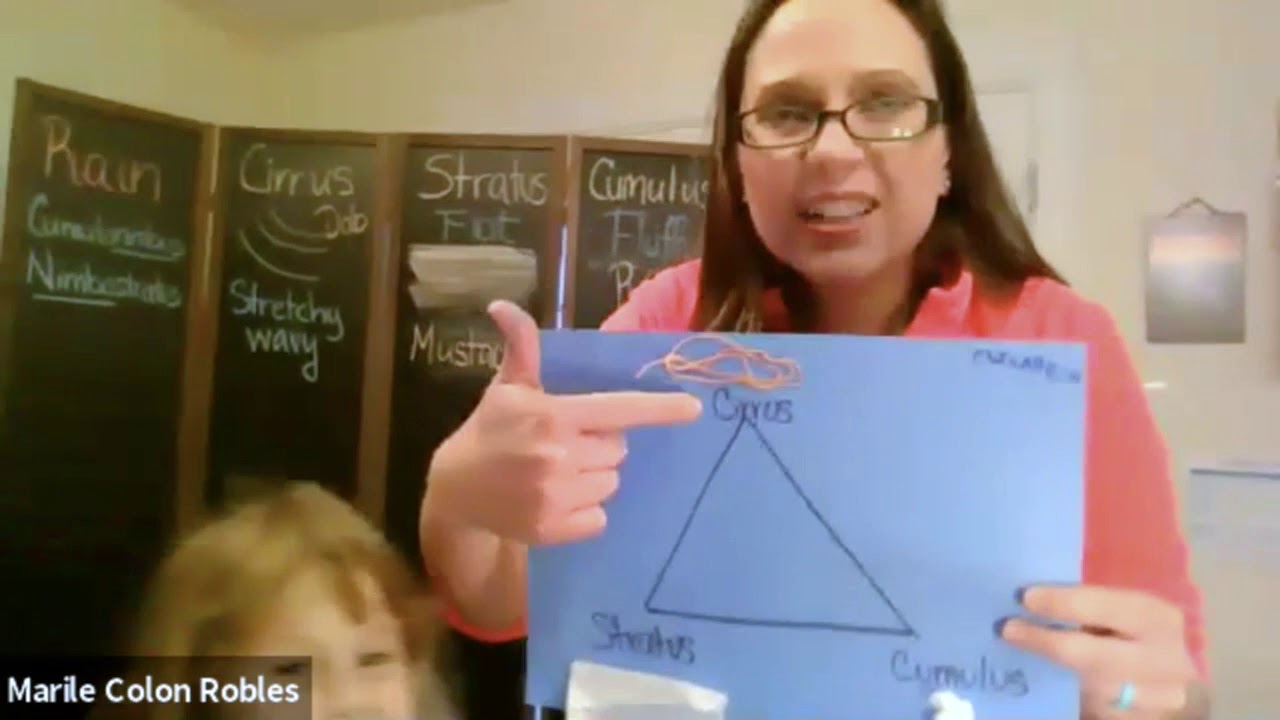Eclipse Library Resources - GLOBE Observer
Eclipse Library Resources
Shortlink to this page: https://observer.globe.gov/EclipseLibraryResources
GLOBE Eclipse is a temporary tool in the GLOBE Observer app that is only opened when a solar eclipse is happening somewhere in the world. The Eclipse tool will prompt you to take air temperature measurements, as well as observations of sky conditions using the Clouds tool. This collection of activities and resources are useful for creating library programs related to a solar eclipse. Find more eclipse resources at: https://observer.globe.gov/de/do-globe-observer/eclipse/resource-library.
Taking GLOBE Eclipse observations requires the GLOBE Observer app on a smart device, and an optional thermometer. Note that there are many kinds of thermometers that can also be used to take GLOBE Eclipse air temperature observations, from a simple liquid-filled thermometer to more complex digital models - see more about different types in the FAQs to GLOBE Eclipse Taking Observations.
Webinars
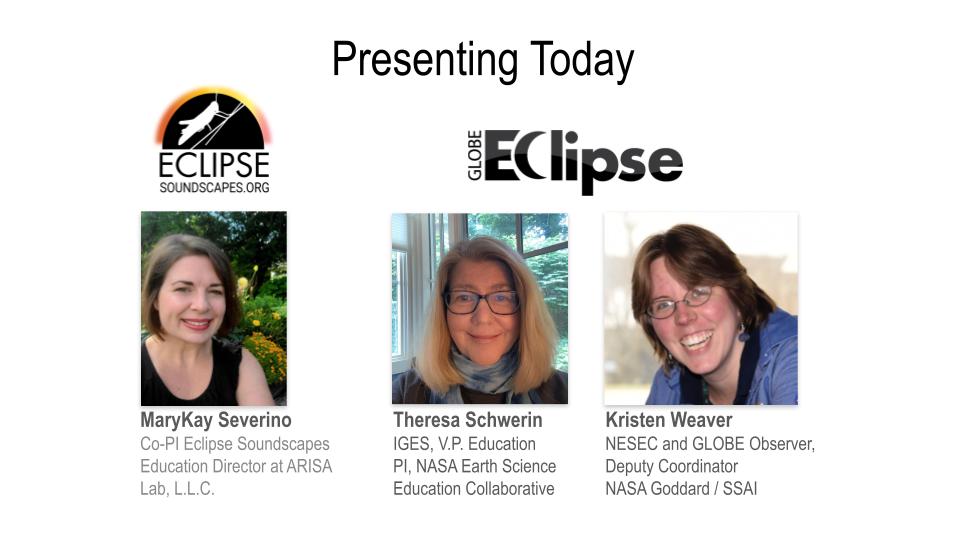
GLOBE Eclipse Library Webinar: Planning and Timeline for the April 8 Eclipse (January 10, 2024)
Topics included: Icebreaker - What are your top tips/advice from the October Eclipse for the April total solar eclipse; Quick Recaps and Summary from October for GLOBE Eclipse and Eclipse Soundscapes; Nominal planning timeline; and Program Planning template.
Webinar Presentation Slides (Google Slides)
Nominal Planning Timeline (Google Doc)
Program Planning Template (Google Sheet)
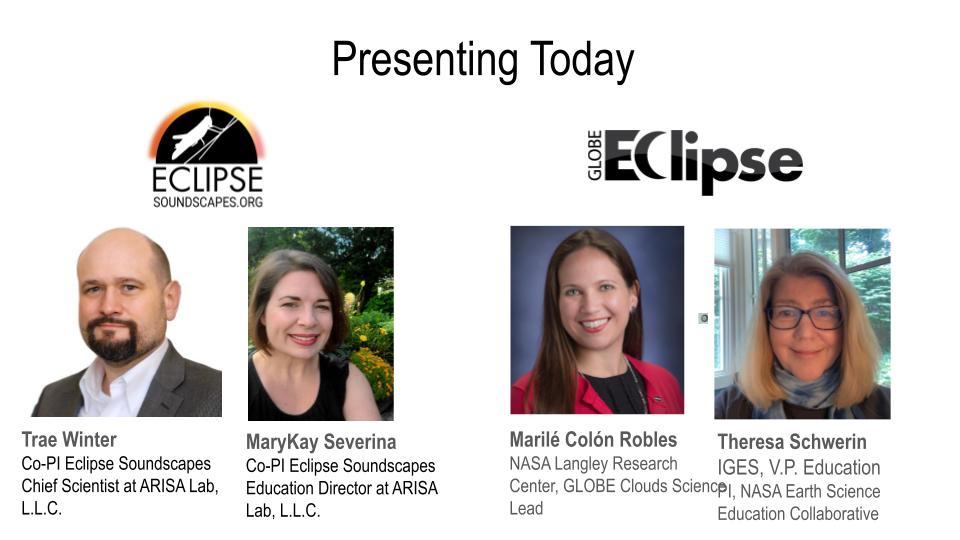
Two for One: GLOBE Eclipse and Eclipse Soundscapes (December 6, 2023)
Discussion with scientists Marilé Colón Robles, NASA Langley Research Center, and Trae Winter, ARISA Lab, who talked about why they are excited about library sites that will take observations of both atmospheric conditions (GLOBE Observer) and animal behavior (Eclipse Soundscapes) during the April 8 total solar eclipse. Learn why these co-located observations will make a unique contribution to science. Included a discussion of strategies for program planning related to common challenges (weather and logistics of large public events, engaging citizen scientists).
Webinar Presentation Slides (Google Slides)
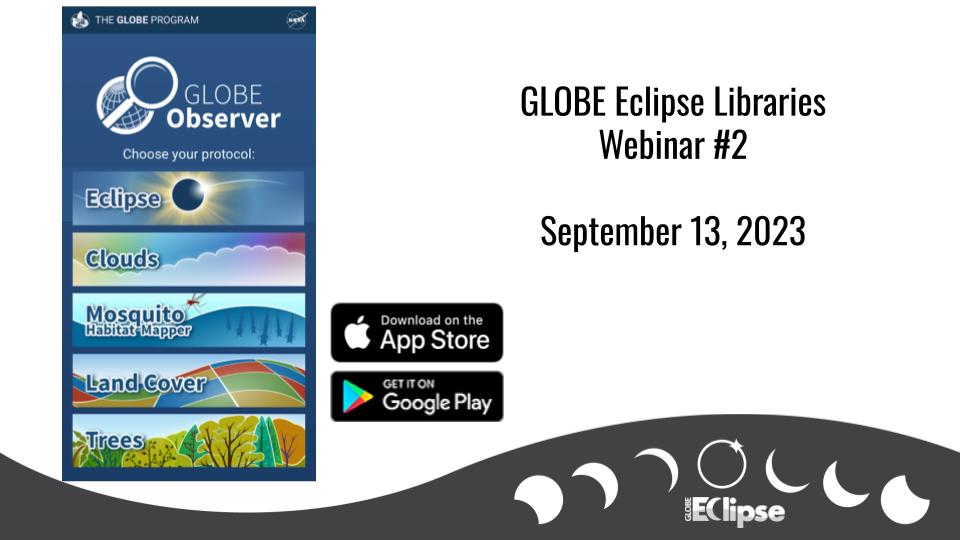
GLOBE Eclipse Libraries Webinar #2 (Sept. 13, 2023)
Topics included library plans for the October eclipse, with presentations by Oldham Public Library and North Little Rock Public Library who gave a more in-depth window on their work. There was a walk-through of the GLOBE Eclipse app in staging, overview of some promotional resources that you can use/adapt, and a walkthrough of the Taylor 1441E air temperature thermometer and how to use it.
Webinar Presentation Slides (Google Slides)
GLOBE Eclipse Graphic Assets (.zip)
GLOBE Eclipse Sample Social Media Shareables (.zip)
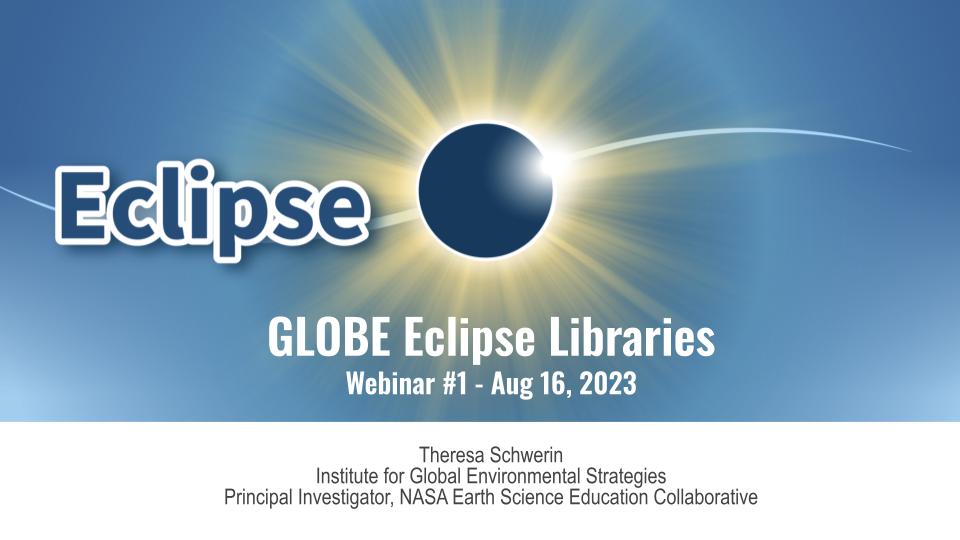
GLOBE Eclipse Libraries Webinar #1 (Aug. 16, 2023)
Topics included: Updates, Eclipse Safety, GLOBE Eclipse tool, finding local Subject Matter Experts, additional resources for libraries.
Webinar Presentation Slides (Google Slides)
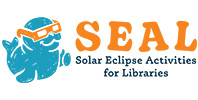
Citizen Science and Library Eclipse Programming: GLOBE Observer (May 4, 2023)
STARNet Libraries Webinar on Eclipse Citizen Science, which included an overview of GLOBE Eclipse and Clouds, Library Resources, and going further by taking surface temperature with an infrared thermometer.
Webinar Presentation Slides (PDF)
Printables and Promotional Materials
Use these materials to promote your program and give participants something to bring home.
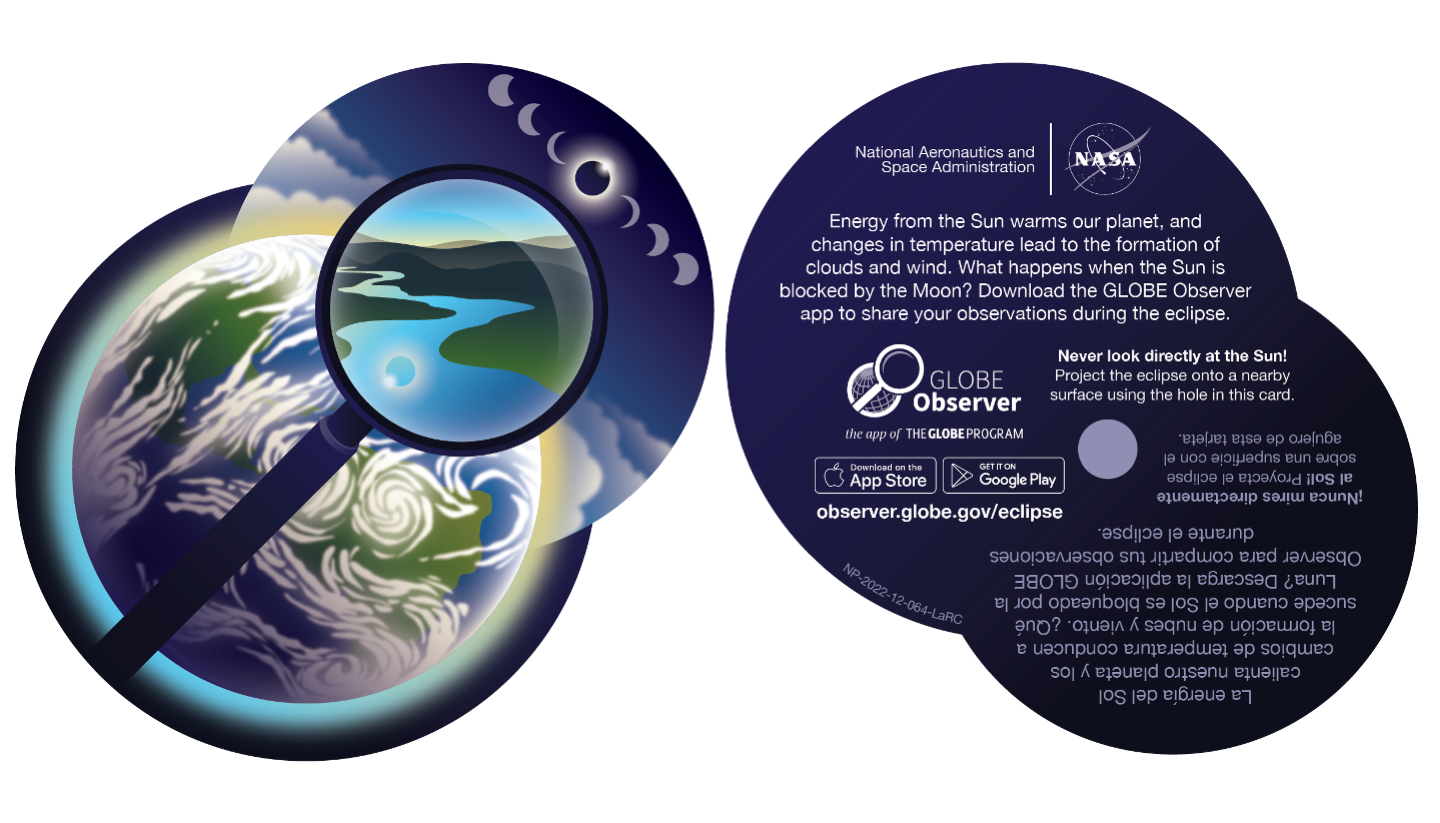
GLOBE Eclipse Pinhole Postcard
Dual-language (English and Spanish) postcard about observing the eclipse with GLOBE Observer, with a space in the middle that can be punched out to use as a pinhole projector. The text reads: "Energy from the Sun warms our planet, and changes in temperature lead to the formation of clouds and wind. What happens when the Sun is blocked by the Moon? Download the GLOBE Observer app to share your observations during the eclipse. Never look directly at the Sun! To use the card to view the eclipse indirectly, stand with your back to the Sun and look at the card's shadow. The shape of the hole in the shadow will mirror the shape of the eclipsed Sun.
Activities
Find eclipse-related activities to integrate into library programs for all ages.
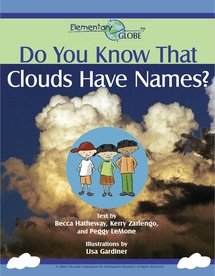
Elementary GLOBE: Clouds Module - Do You Know that Clouds Have Names?
In this science storybook, children learn the names of the different cloud types, discover at what height each cloud type floats in the sky, and the type of weather associated with each cloud. The module includes notes for the educator or parent, and hands-on STEAM activities. The books are available in multiple languages and as free downloadable PDFs, eBooks with narration (for computers and tablets), or print on demand paperback books.
Create a cloud collage and ask your friends to guess the percentage of cloud cover. Expand or adapt this activity by printing photos of the sky and asking participants to identify the cloud coverage.
See a video demonstration of Estimating Cloud Cover as a family activity (YouTube)
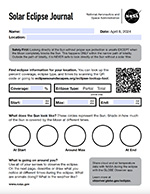
Use this journal page to record what you see during the solar eclipse, both how much of the Sun is covered by the Moon at different times, as well as observations of the environment around you (animal behavior, weather, etc.) during different periods of the eclipse. NOTE: It is never safe to look directly at the Sun without eye protection. The only safe way to look at the Sun is through special-purpose solar filters such as “eclipse glasses” or hand-held solar viewers.
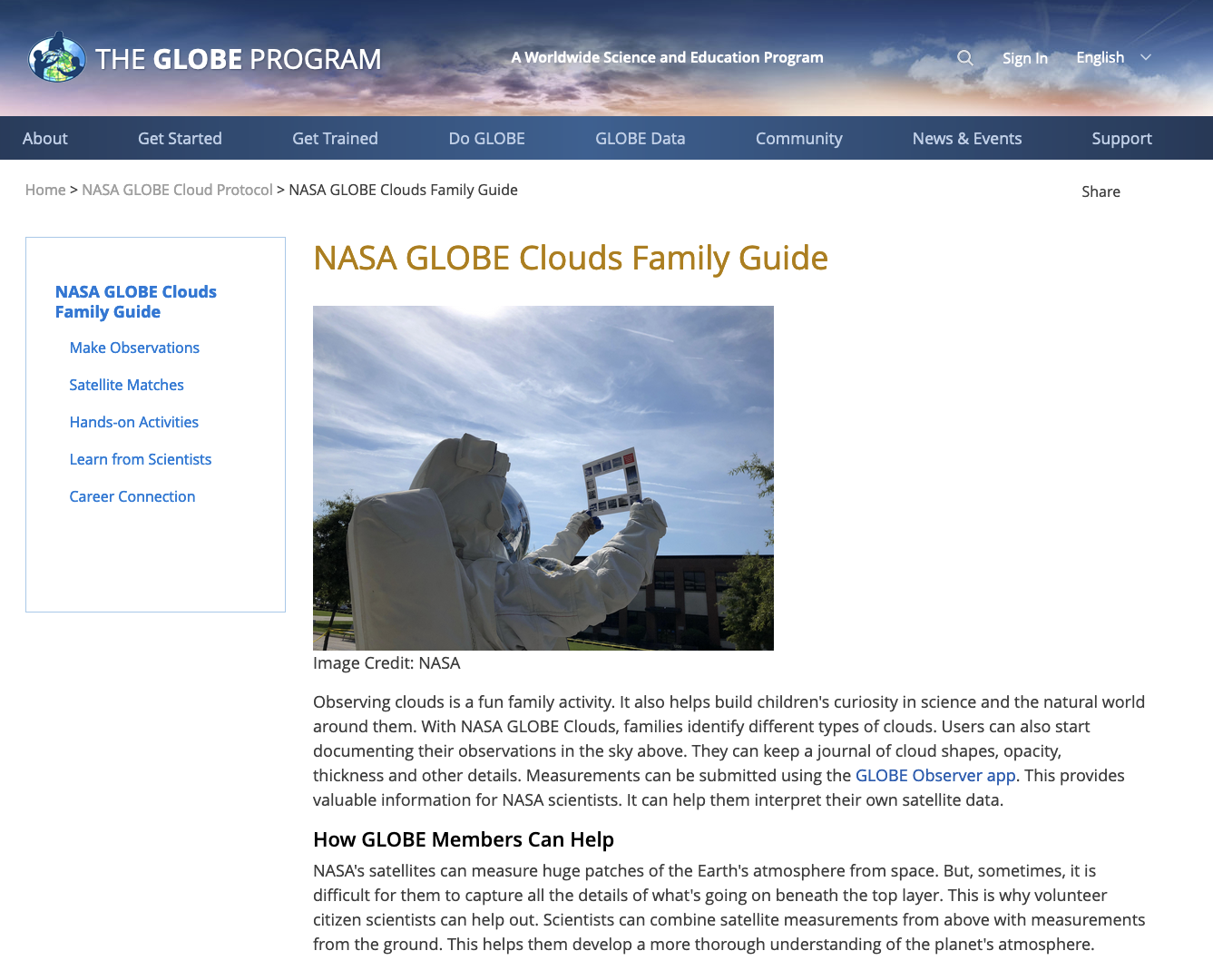
NASA GLOBE Clouds Family Guide
Observing clouds is a fun family activity. It also helps build children's curiosity in science and the natural world around them. This collection includes hands-on activities that work well with multi-generations, and science videos to meet different NASA scientists and learn how to look at clouds from a different perspective.
Books
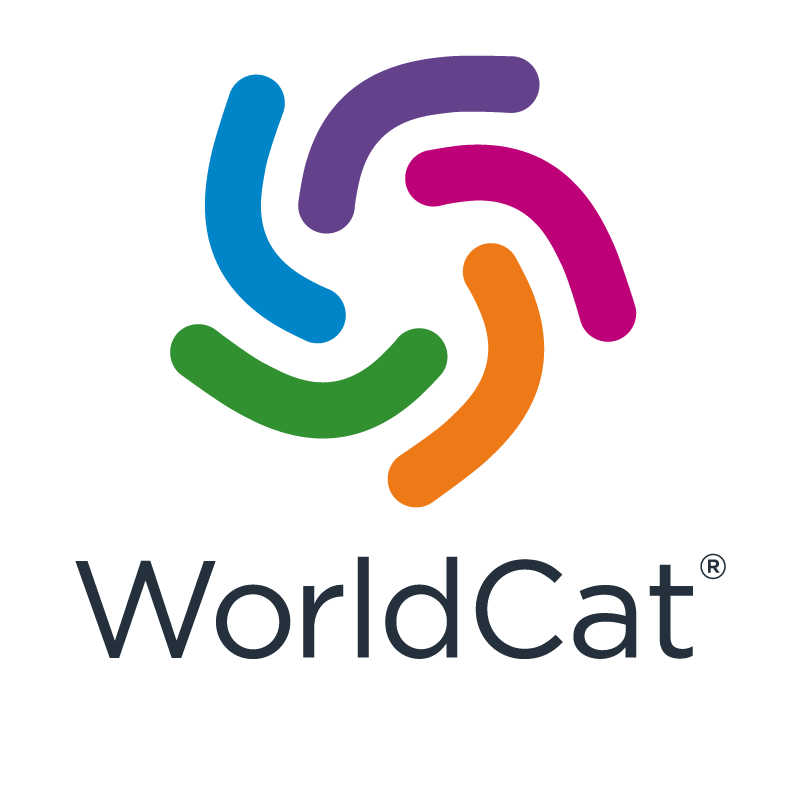
Use WorldCat to search libraries near you, read reviews, and find editions in different languages. Thanks to the following libraries for their recommendations of books to include: Evansville Vanderburgh Public Library, IL; LsSalle Public Library, IL; Macedon Public Library, NY; and Richmond Memorial Library, NY.
Books for Kids: Eclipse books, Clouds books
Books for Teens and Adults: Eclipse books, Clouds books
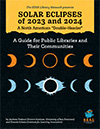
Solar Eclipses of 2023 and 2024: A Guide for Public Libraries and Their Communities
This guide by the STAR Library Network presents background information on eclipses, safe viewing, ideas for eclipse events, finding partners, and additional resources.
Frequently Asked Questions - Eclipse Library Programs
For answers to questions commonly asked by librarians planning for eclipse programs, please see this FAQs Google Doc. If you have an overall app question, not specific to libraries, try the general FAQ page.









